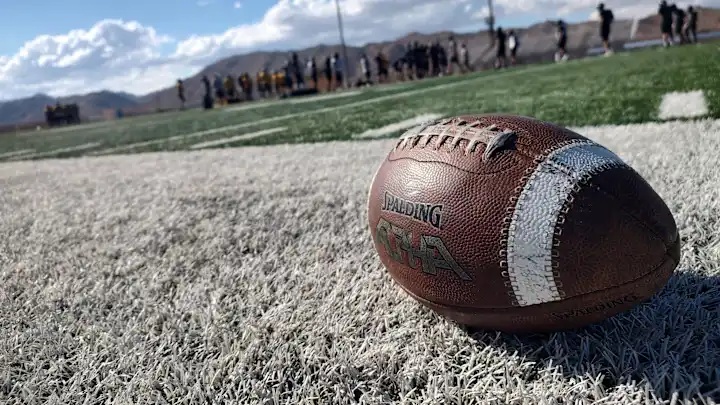The sounds of school spirit is filling the air across southern Ohio. Local teams are taking the field, families are filling the stands, and the first Friday night lights of the season kicked off on August 22. It's a time of pride, tradition, and excitement for student-athletes and the communities that support them.
But as the season begins, it’s also a time to talk about something that isn’t always visible: concussions. These injuries can happen in any sport and often come without warning. As much as you want to cheer on the big plays and hard hits, Adena encourages families to take any possible concussion seriously. For young athletes, recognizing the signs early and knowing how to respond can make all the difference.
Whether you're cheering from the bleachers or coaching on the sidelines, staying informed about concussion safety helps protect our kids both now and in the future.
Concussion symptoms to watch out for
When it comes to concussions in high school athletes, awareness is key. These injuries often come without warning, and symptoms can show up immediately or take hours or even a day or two to appear. That is why concussion awareness among parents, coaches, and caregivers matters so much.
The CDC recognizes that high school football has the highest rate of concussions among youth sports. In fact, tackling is responsible for 63% of concussions in high school football. And because every school district Adena serves has a football program, this concern hits close to home. The risks are real, but so is the power of early recognition.
Concussion symptoms that happen right away
Symptoms that may appear right after an impact include:
Headache or pressure in the head
Nausea or vomiting
Dizziness or balance problems
Confusion or feeling dazed
Sensitivity to light or noise
Slowed response or blank stare
Concussion symptoms that may be delayed
Some symptoms do not show up until hours later, or even the next day:
Difficulty concentrating
Memory problems
Mood swings or irritability
Fatigue or drowsiness
Trouble sleeping
Steps to take after a concussion
If a player shows signs of a concussion, the safest move is to take them out of the game right away. The Ohio High School Athletic Association (OHSAA) requires immediate removal from play for any student-athlete suspected of having a concussion. Once removed, they cannot return to the field the same day, even if symptoms seem to fade.
A full medical evaluation is the next step. Only a licensed healthcare provider can determine when it is safe to return to sports, and that clearance must be given in writing. Recovery should never be rushed. Doctors often recommend a gradual return to activity, starting with light movement and progressing only when symptoms are fully resolved. Following medical guidance protects long-term health and helps prevent repeat injury.
At Adena Health, licensed athletic trainers are on-site at 12 local high schools, offering care that’s close, convenient, and trusted. These trainers support athletes during practices and games, help prevent injuries before they happen, respond quickly when they do, and connect families with the care team at Adena Orthopedic and Spine Institute. Their goal is to keep athletes healthy and get them safely back in the game when they’re ready.
Encouraging a safe playing environment
One of the most effective ways to lower the risk of concussions in high school athletes is by creating a sports environment where safety comes first. Coaches set the tone by teaching proper techniques, insisting on safe play, and making sure protective equipment fits well and is used every time.
But the attitude in the stands matters just as much as the one on the field. Parents, it’s time to move past the old “walk it off” or “rub some dirt on it” mindset. When a student-athlete mentions a headache or says something feels off, take it seriously. Concussion symptoms are not always obvious, but they should never be ignored.
Young athletes often push through pain to stay in the game. That’s why they need adults who will listen and act. Helping them speak up and encouraging rest and recovery can prevent further injury and make a real difference in their long-term health.
If you have questions or concerns about a possible concussion, Adena Sports Medicine is here to help. Our athletic trainers and care teams are already part of your community, working directly with students in schools across the region.
To learn more about the school-based care Adena provides, visit Adena.org/SchoolCare. From onsite support to specialty referrals, we are here to keep student-athletes healthy, safe, and ready to compete.
